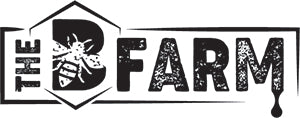Becoming a beekeeper is the best way to boost the bee population in your community, and it’s not as difficult as you may think. Whether you’re an avid beekeeper or a beginner, understanding the correct ways to care for your bees is imperative. Follow these five best practices for sustainable beekeeping and live in harmony with your bees.
Plant a Bee Garden
Sustainable beekeeping practices can start with simply planting a garden with bee-friendly plants and flowers. It’s no secret that bees have to get their resources somewhere outside the hive, and planting pollen- and nectar-rich plants on your property is the best option to give them what they need. Ensure your colony has plenty of foraging opportunities, especially during spring and early summer.
Caution: Avoid using toxic pesticides on your plants as they can harm your bees!
Safe Bee Feeding
Bee feeding the correct way is also an essential practice, and when you first start a hive, you’ll need to decide between open or closed feeding. Making sure your colony has feed when nature does not provide is essential when you are growing a hive. Open feeding is discouraraged as it can cause robbing. You should leave your colony with enough honey to feed them through the winter but it may be necessary to feed additional resources throughout the winter or in early spring. You should periodically check on you hive during warm winter days to see how much feed stores they have. .
However, an additional feeding supplement might be necessary in an emergency, such as a lack of food sources within the beehive. Avoid using honey from another local colony, as it can contain bacteria or viruses that may impact your bees.
Honey Harvesting
Harvesting honey is one of the most rewarding parts of being a beekeeper, but your bees must come first. Since honey is the sole food source for your bees, you should only harvest honey if there is excess and a steady nectar flow. Harvesting too much can put your colony at risk of running out of food and is sometimes a mistake that beginner beekeepers make. Generally, honey harvesting doesn’t occur the first year of your hive, and depending on the size of your colony, you can eventually expect to pull anywhere from 25 to 100 pounds per year.
Browse our blogs or contact us to learn more sustainable beekeeping tips.
